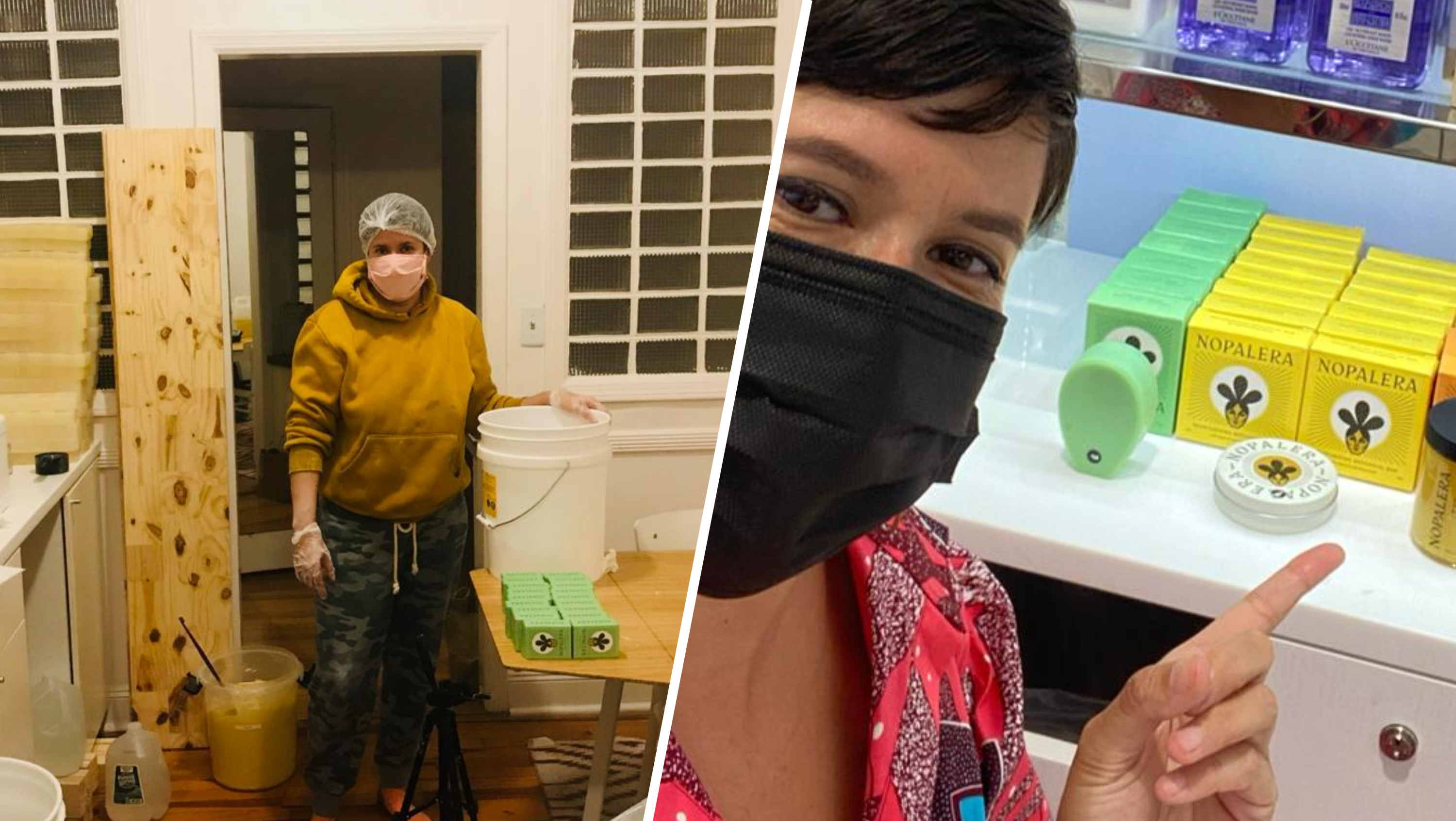Vice Media, a multibillion dollar company, is demanding that a Los Angeles-area indie punk-funk trio, ViceVersa, change its name and the band is fighting back.
Guitarist Zeke Zeledon, bassist Sarah Corza, and drummer Ariel Fredrickson have been playing gigs as ViceVersa mostly in the Los Angeles-area for nearly three years.
On a good month they bring in about $1,500 from gigs and merchandise. The band has played over 150 shows, released two EPs, and several music videos. They also received conditional approval from the United States Patent and Trademark Office to use the name ViceVersa in 2014.
But late last year, the band received a cease-and-desist letter from Vice attorneys, demanding they abandon their name, saying it's causing consumer confusion.
"When we first got the letter were like, 'What the heck?'" Zeledon said. "I thought that's what getting a trademark was for, to try to avoid this. It was an investment getting it done."
They spent up to $3,000 to go through the trademark process, he said.
Vice Media lawyer Kimberly Herman didn't respond to an email seeking comment.
But in opposing the name to a Patent and Trademark appeal board in March, she argued that ViceVersa is "confusingly similar in sound, appearance, connotation, and overall commercial impression" to Vice and it "covers services identical, substantially similar, and/or closely related" to those offered by Vice.
A Vice spokesperson told the Huffington Post that ViceVersa's trademark application "overlaps with the scope of our already existing federal trademark. This is a standard, cut-and-dry trademark matter and we are not involved in litigation with this band."
The band, which stays in a low-rent art studio warehouse in Whittier, started an online campaign to raise money. So far, they've raised $1,000 toward a $2,500 goal.
In a video, Zeledon reads from the cease-and-desist letter. After reading the letter Zeledon says "We wanna know, starting with our fans, if you guys feel that ViceVersa and Vice Media are similar and confusing in any way ...
"Let's make some noise and see if we could maybe say, 'What's up?' to Vice."
Charley Moore, the CEO of Rocket Lawyer, a San Francisco-based developer of online legal documents and support, said it is not uncommon for companies to defend their trademark.
"Litigation or the threat thereof is often used by the strong against the weak," said Moore, who has written extensively on patent and trademark issues.
Last year Moore wrote an article for Entrepreneur magazine about a trademark infringement lawsuit from the craft brewery, Lagunitas.
U.S. & World
The company filed against a fellow craft brewery, Sierra Nevada Brewing Company, over a logo for a new beer. Lagunitas CEO felt the label on Sierra Nevada's brew was too similar and in an effort to protect his brand, he decided to take legal action.
The suit was eventually dropped after it went viral on Twitter.
Moore said ViceVersa faces a "David-versus-Goliath" battle.
Legal costs could amount to over $100,000 or more if the case drags out beyond letters and calls to protracted litigation, he said.
This isn't the first time Vice Media has taken on a company over trademark infringement.
Last June, the company filed a lawsuit against Virtue Marketing, a 1,200 employee film and show production company, according to the Hollywood Reporter.
Vice claimed the name Virtue because the company uses the name for its in-house creative, advertising and marketing agency, according to the Hollywood Reporter.
"Vice named its advertising agency Virtue in order to play off the Vice name (i.e., a virtue is the opposite of a vice, and the agency extols the virtues of its advertisers)," the Reporter said, citing the lawsuit.
Zeledon is committed to taking on Vice, which grew from a punk magazine in 1994 called the Voice of Montreal into a $2.5 billion international media company.
"It's become more than us, at this point," he says. "It's about any artist who's independent."



